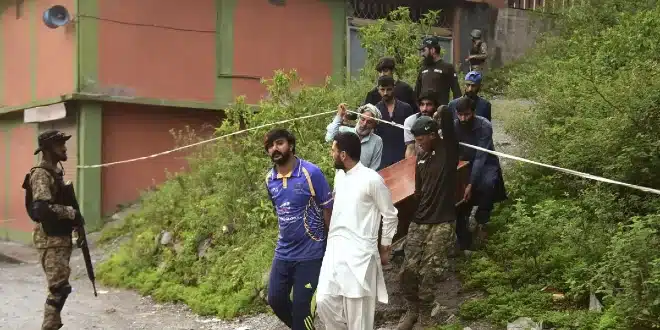The Indian Armed Forces have confirmed that a series of targeted airstrikes carried out on May 7 under the banner of Operation Sindoor eliminated more than 100 militants at multiple locations in Pakistan and Pakistan-occupied Kashmir. The strikes came in response to the April 22 terror attack in Pahalgam, Jammu and Kashmir, where 26 people lost their lives.
According to the Director General of Military Operations (DGMO), Lieutenant General Rajiv Ghai, nine terror sites were identified through detailed intelligence and operational coordination. The offensive focused on disrupting infrastructure associated with groups linked to major terror incidents in India. Among those reported killed were Yusuf Azhar, Abdul Malik Rauf, and Mudassir Ahmed, individuals implicated in both the 1999 IC-814 hijacking and the 2019 Pulwama suicide bombing that killed 40 Indian paramilitary personnel.
The press briefing, held jointly by top military officials including Air Marshal AK Bharti, Vice Admiral AN Pramod, and Major General SS Sharda, provided the first public confirmation of the large-scale strike. The operation was described as swift, highly coordinated, and informed by actionable intelligence inputs.
Escalation and Diplomacy Amid Ceasefire Developments
Following the execution of the operation, Indian officials attempted to initiate communication with their Pakistani counterparts. However, those overtures were rejected. Lt. Gen. Ghai noted that the attempt to establish dialogue immediately after the operation was met with a hostile posture from Pakistan, which signaled intentions of retaliatory escalation rather than engagement.
The armed forces also acknowledged the cost of the mission. Five Indian soldiers were confirmed killed during Operation Sindoor, and tributes were paid to their service and sacrifice. The military leadership emphasized that the operation, while successful in eliminating high-value targets, also reflected the ongoing risks borne by Indian personnel along the border and in counter-terror operations.
On May 10, India and Pakistan reached a mutual agreement to enforce a ceasefire beginning at 17:00 hours. Despite the agreement, Indian defense forces reported subsequent incidents of drone incursions and explosions in Jammu and Kashmir. Security forces successfully intercepted these attempts, preventing further damage or casualties.
The current developments mark a significant escalation in cross-border tensions, reflecting a shift in India’s posture toward preemptive counterterrorism operations. Operation Sindoor, named after the traditional vermilion associated with sacrifice and valor, represents one of the most extensive Indian air campaigns across the Line of Control since the Balakot strikes in 2019.
The Indian military has reaffirmed its commitment to maintaining operational readiness while seeking diplomatic channels for long-term stability. However, officials indicated that any future provocations would be met with similar force.


